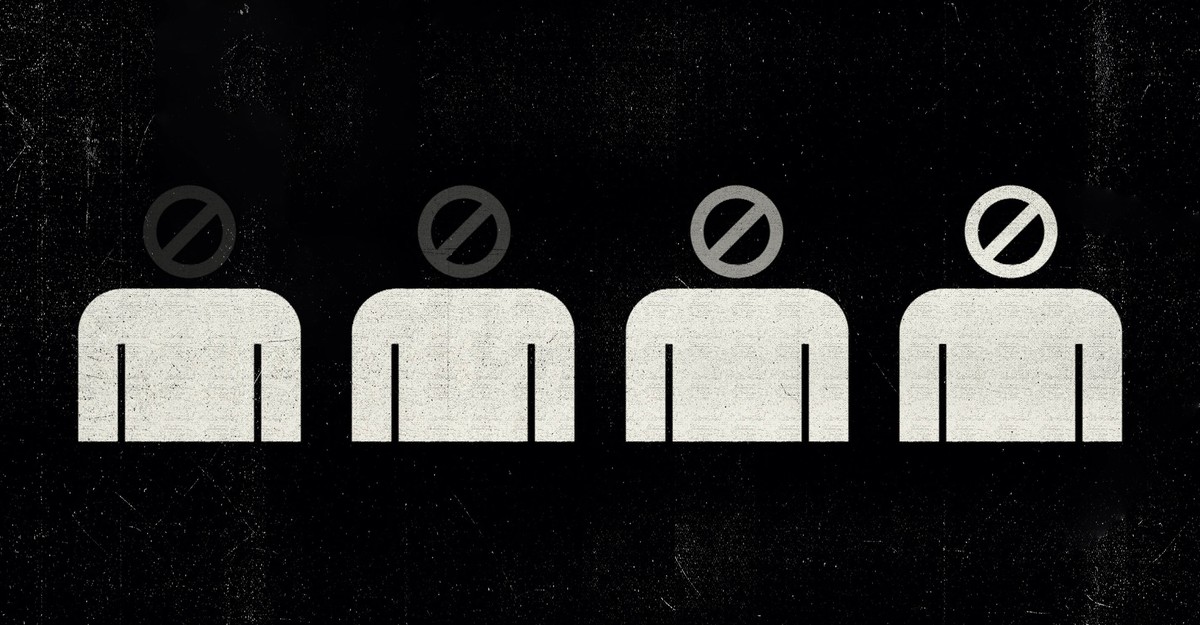Why Are Layoffs Contagious? – The Atlantic

Late last year, the tech companies Stripe, Amazon, Facebook, Cisco, and Twitter laid off workers en masse. Come the new year, Google, Microsoft, Amazon (again), Salesforce, Dell, IBM, SAP, Zoom, and PayPal did the same.
Sure, many of those firms have seen their revenues and profits decline in the past year; the tech sector as a whole has been hit hard by shifting consumer behavior, falling advertising spending, and rising interest rates. Yet each of them, except Twitter, is making money—some of them wildly so. Facebook’s parent company, Meta, made $23 billion last year. Microsoft made more than $70 billion, placing it second in profitability among Standard & Poor’s 500 companies, behind Apple.
Those firms, in other words, did not need to let so many workers go; they chose to. And they did so because other tech firms were making the same choice. Laying off employees turns out to be infectious. And that makes it all the more insidious.
Indeed, these tech layoffs (as well as a recent round of media layoffs, I should add) are what the Stanford professor Jeffrey Pfeffer, an expert on organizational behavior, has termed “copycat layoffs.” When executives see their corporate competitors letting go of workers, they seize what they see as an opportunity to reduce their workforce, rather than having no choice but to do so.
Shedding employees when everybody else is doing it avoids drawing public scrutiny to or creating reputational damage for a given firm, for one. A lone business announcing that it is downsizing is likely to be described as mismanaged or troubled, and may well be mismanaged or troubled. However merited, that kind of reputation tends to hinder a company from attracting investment, workers, and customers. But if a firm downsizes when everyone else is doing it, the public seldom notices and investors seldom care.
Copycat layoffs also let executives cite challenging business conditions as a justification for cuts, rather than their own boneheaded strategic decisions. In this scenario, the problem isn’t that corporate leadership poured billions of dollars into a quixotic new venture or hired hundreds of what ended up being redundant employees. It’s not that the C-suite misunderstood the competitive environment, necessitating a costly and painful readjustment. It’s Jay Powell! It’s a COVID-related reversion to the mean! Who could have known?
In addition to being simpler for executives to explain to their shareholders or the board, large-scale copycat layoffs are easier to carry out and better received by employees than selective or strategic layoffs. Managers let staffers go instead of firing them, blaming economic conditions rather than detailing their direct reports’ shortcomings. Morale might take less of a hit if the remaining workers fault the broader business environment instead of their bosses.
Another possible reason layoffs are contagious is that executives might take other firms’ hiring and firing decisions as a kind of market intelligence. Even when a company’s own financials appear sound, it may interpret a competitor’s layoff announcement as a sign of worsening conditions. Something less intellectual and more instinctual is at play too, Pfeffer told me. “Humans imitate other humans. We copy what other people do,” he said. “These tech companies copied one another in hiring on the way up, and now they’re copying each other in laying off on the way down. I would find it almost inexplicable if this kind of behavior did not get copied.” He added: “It does not make a lot of sense. If you’re going to achieve exceptional results, you need to do things that are different from what everybody else does.”
Indeed, reflexively laying off employees when every other company is doing so makes bad business sense. Downsizing is horrible for morale. It hinders the performance of retained workers. It is expensive, as many firms pay severance to departing employees. And layoffs do not tend to improve a given company’s profit margins, boost its valuation, or lead it to perform better than its peers either—in part because of the effect on surviving employees and the loss of institutional knowledge, and in part because layoffs tend to be a sign of mismanagement in the first place. (Indeed, chief executive officers who engage in mass layoffs are more likely to get pink-slipped themselves.)
Firms that downsize end up suffering. Laid-off employees suffer as well, particularly if few other firms are hiring. “There’s been an absence of discussion of the profound consequences, behaviorally and mentally and physically, of these decisions,” Pfeffer told me, pointing to the large body of research on the miserable and long-lasting health impacts of getting fired.
A better copycat trend would be for firms to proactively and aggressively avoid layoffs, as they did before becoming enthralled with “lean” management practices and focused on near-term returns in the 1970s. “Decades ago, layoffs were exceptional and done only in the face of pretty severe economic contractions,” Pfeffer told me. “You want to treat people like you treat any of your assets. Don’t hire and fire based on short-term considerations.” Or better yet, think about picking workers up when other firms are putting them down.



















You must be logged in to post a comment Login